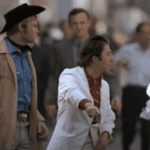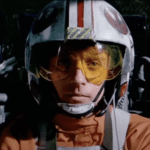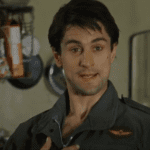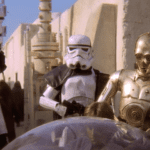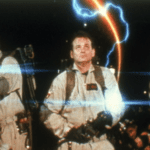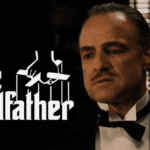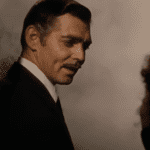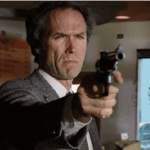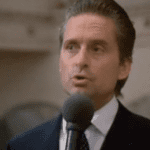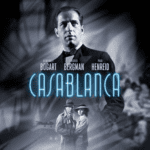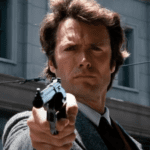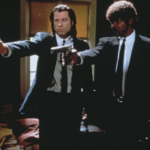Released in 1942, “Casablanca” remains one of the most critically acclaimed films in cinematic history. Directed by Michael Curtiz, the film stars iconic actors such as Humphrey Bogart and Ingrid Bergman, whose performances have captivated audiences for decades. Set against the backdrop of World War II, “Casablanca” combines elements of romance, sacrifice, and patriotism, making it a timeless piece of art that resonates with viewers even today.
The film unfolds in Casablanca, a city that serves as a vital crossroads for refugees fleeing the war-torn regions of Europe. Its story revolves around Rick Blaine, played by Bogart, an American expatriate who runs a nightclub called Rick’s Café Américain. Rick’s character is marked by disillusionment and a complex past, particularly in relation to his former lover, Ilsa Lund, portrayed by Bergman. Their intertwined destinies encapsulate themes of love, loyalty, and the moral dilemmas faced during times of conflict.
The historical context of “Casablanca” plays a crucial role in shaping its narrative. Released during a time when the world was engulfed in war, the film reflects the uncertainty and trepidation of the era. Its themes are interwoven with the broader struggles of humanity, emphasizing the sacrifices made by individuals for the greater good. The film’s profound dialogues and memorable quotes have transcended its original setting, becoming part of popular culture and continuing to inspire people even in contemporary discussions about love and sacrifice.
Moreover, “Casablanca” has garnered critical acclaim for its innovative storytelling, nuanced character development, and exquisite cinematography. It has won several prestigious awards, including three Academy Awards, solidifying its status as a classic. As we delve deeper into the quotes from “Casablanca,” it becomes evident how they encapsulate the film’s core messages and wisdom, transcending time and circumstance.
The Significance of Quotes in Cinematic History
Quotes from films often hold a significant place in the cultural landscape, providing resonance long after the credits roll. They serve not only to encapsulate pivotal moments but also to deepen character development and advance storytelling. In many instances, these memorable lines become synonymous with the films themselves, embedding them in the collective memory of audiences around the world. This phenomenon is particularly prominent in classics such as “Casablanca,” where lines have transcended their original context to become part of popular culture.
The film has the highest number of quotes from any film in The American Film Institutes 100 Movie Quotes having six quotes included in the list. The next highest quoted film was Gone With The Wind and The Wizard of Oz with 3 each.
The quotes from Casablanca that made the list are:-
“Here’s looking at you, kid.” – ranked 5.
“Louis, I think this is the beginning of a beautiful friendship.” – ranked 20
“Play it, Sam. Play “As Time Goes By” – ranked 28. A quote that is very often misquoted with “Play it again Sam”
“Round up the usual suspects.” – ranked 32
“We’ll always have Paris.” – ranked 43 (too low!)
“Of all the gin joints in all the towns in all the world, she walks into mine.” – ranked 67 (again way too low!)
Iconic Quotes and Their Context
The classic film “Casablanca,” released in 1942, is renowned for its memorable quotes, which encapsulate the film’s tumultuous themes of love, sacrifice, and wartime strife. Analyzing these quotes reveals not only their emotionality but also the broader socio-political implications of the narrative. One of the film’s most iconic lines, “Here’s looking at you, kid,” is delivered by Rick Blaine (Humphrey Bogart) to Ilsa Lund (Ingrid Bergman) during a poignant moment. This phrase carries a dual significance; it represents a nostalgic remembrance of their past romance and a bittersweet recognition of their current separation. The context of war amplifies its emotional weight, symbolizing the pain of lost love amid a backdrop of global conflict.
Another impactful quote is “We’ll always have Paris,” which Rick shares with Ilsa. This line serves as a reminder of their brief, yet intensely passionate time together in Paris before the onset of World War II. It highlights the theme of cherished memories in the face of inevitable change, as the couple grapples with their realities. The nostalgia embedded in this quote resonates deeply with audiences, illustrating the human tendency to hold onto joyous moments even when circumstances force separation.
“Of all the gin joints in all the towns in all the world, she walks into mine,” is yet another profound quote articulated by Rick. This line encapsulates the randomness of love and fate, alluding to the unpredictability of life’s circumstances. It reveals Rick’s initial disbelief that Ilsa has re-entered his life, sparking a cascade of emotions that weave throughout the film’s narrative. Each of these quotes is not merely dialogue but an integral component that informs character motivations and strengthens the audience’s emotional engagement with the story.
Key Characters Behind the Quotes
The film Casablanca, released in 1942, features several pivotal characters whose profound quotes have traversed time, resonating deeply with audiences. Each character embodies unique traits that contribute to the emotional weight of their words. Foremost among them is Rick Blaine, portrayed by Humphrey Bogart. Rick is a complex character, initially presenting as a cynical bar owner who has distanced himself from the world around him. However, beneath this tough exterior lies a sense of responsibility and an enduring love for Ilsa Lund, a relationship that becomes central to the film’s narrative. His famous lines encapsulate his internal conflicts, illustrating the struggle between personal desire and moral duty.
Ilsa Lund, played by Ingrid Bergman, represents love and sacrifice. Her character first appears as a passionate woman deeply torn between her feelings for Rick and her commitment to her husband, Victor Laszlo. Ilsa’s struggle is portrayed with raw emotion, making her quotes resonate with themes of longing and regret. Her relationship with Rick is characterized by nostalgia and unresolved tensions, enhancing the poignancy of her dialogue throughout the film.
Victor Laszlo, portrayed by Paul Henreid, stands as a symbol of idealism and heroism. As a leader in the fight against the Nazis, his unwavering commitment to the cause and to Ilsa pulls her deeper into a web of conflict. Laszlo’s quotes often reflect his steadfastness in the face of danger, providing a contrasting perspective to Rick’s more cynical worldview. Together, these characters create a rich tapestry of interrelated emotions and motivations, allowing their quotes to transcend the context of the film and speak to universal truths about love, sacrifice, and human connection.
Exploring Themes through Quotes
The film ‘Casablanca’ masterfully intertwines various themes, notably love, sacrifice, and patriotism, each eloquently encapsulated within its memorable quotes. One of the most iconic lines, “Here’s looking at you, kid,” reflects the deep affection Rick Blaine holds for Ilsa Lund. This quote not only highlights romantic love but also the longing and nostalgia that permeate their relationship, emphasizing how love can be both a source of joy and heartache.
Moreover, the theme of sacrifice is poignantly illustrated in the emotionally charged declaration, “We’ll always have Paris.” This statement signifies the willingness to let go of love for the greater good, echoing the sacrifices individuals make for their own countries during times of conflict. It serves as a reminder that personal relationships can be overshadowed by the demands of duty and honor. Through this lens, viewers gain insight into the complex emotions influencing the characters’ decisions, deepening their understanding of the narrative’s moral weight.
Patriotism emerges as a defining element in the film, especially in the stirring quote, “This is the beginning of a beautiful friendship.” This line not only marks a pivotal alliance between Rick and Captain Renault but also underscores a burgeoning sense of loyalty toward a cause greater than themselves. The film’s backdrop of World War II enhances the significance of these bonds, as characters grapple with their identities amidst the turmoil of war. Quotes like these reinforce the idea of camaraderie and collective resilience, imparting a stirring sense of hope against adversity.
Through these famous quotes, ‘Casablanca’ encapsulates profound themes that resonate with audiences, enhancing their emotional experience and fostering a deeper connection to the narrative. The interplay of love, sacrifice, and patriotism not only defines the characters but also reflects the complexities of human relationships in challenging times.
Cultural Impact and Legacy of Casablanca Quotes
The film “Casablanca,” released in 1942, stands as a monumental work in cinematic history, not only for its narrative and performances but also for its memorable quotes. These lines have transcended their original context, becoming integral to popular culture across the globe. Quotes such as “Here’s looking at you, kid,” and “We’ll always have Paris” have woven themselves into the fabric of everyday language, serving as expressions of nostalgia, love, and loss.
Numerous films and television shows have referenced “Casablanca,” embedding its quotes within new contexts while paying homage to the classic. For instance, various comedic parodies have emerged, such as the use of these iconic lines in shows like “The Simpsons” and “Friends.” This kind of parody illustrates not only the broad recognition of the original quotes but also the cultural adaptability of their meanings over time.
The influence of “Casablanca” extends beyond film and television into literature, theater, and advertising. Authors have drawn inspiration from the film’s dialogue, often using similar phrases in their works to evoke themes of longing and romance. Advertisements have utilized these enduring lines to create emotional connections between products and consumers, further perpetuating the quotes’ legacy.
Moreover, the resonance of “Casablanca” quotes in international contexts is also notable. The film has been translated into many languages, allowing its powerful dialogue to touch various cultures and audiences worldwide. This global reception underscores the film’s significance in examining complex human emotions, which remain relevant despite cultural differences.
Ultimately, the quotes from “Casablanca” have transcended simple dialogue, securing their place not only in cinematic history but also in the broader cultural lexicon. Their impact continues to be felt, reflecting the film’s profound emotional and thematic relevance even decades after its release.
Lessons and Reflections from Casablanca Quotes
The film “Casablanca,” known for its unforgettable quotes, offers profound insights into relationships, duty, and human values that remain relevant today. One notable quote is Rick Blaine’s “Here’s looking at you, kid,” which encapsulates the theme of unrequited love and nostalgia. This sentiment resonates widely, illustrating how relationships often carry unfulfilled desires and bittersweet reminders of the past. Such reflections can serve as poignant reminders to cherish meaningful connections while accepting that not all relationships can thrive.
Additionally, the quote, “We’ll always have Paris,” evokes a sense of permanence in cherished memories. It emphasizes the importance of holding onto good moments, even amidst change and uncertainty. In contemporary life, this perspective encourages individuals to appreciate fleeting experiences while acknowledging that life’s transitions may alter our circumstances and relationships. This sentiment also serves as comfort during difficult times, suggesting that our past experiences can continue to provide joy and solace.
Ultimately, the quotes from “Casablanca” not only serve as memorable lines but also offer rich reflections on enduring life lessons and ethical considerations, reinforcing the relevance of the film in contemporary discussions about relationships and moral choices.
Conclusion: The Enduring Power of Casablanca’s Quotes
The film “Casablanca,” released in 1942, has left an indelible mark on cinema, and its quotes resonate powerfully with audiences across generations. The dialogue crafted by screenwriters Julius J. Epstein, Philip G. Epstein, and Howard Koch has transcended the context of the film, becoming part of popular culture. Phrases such as “Here’s looking at you, kid,” and “We’ll always have Paris” serve not only to encapsulate the emotional weight of the narrative but also to express universal themes of love, sacrifice, and enduring hope.
The timeless quality of these lines can be attributed to their ability to capture complex emotions in a few words. They reflect the struggles of their characters, yet they also speak to the human experience, allowing viewers to connect deeply with the themes presented. This connection is why “Casablanca” continues to inspire filmmakers and writers, influencing storytelling methods in modern cinema. The film’s exploration of moral ambiguity and the choices faced by its characters serves as a reminder of the complexities inherent in love and duty, concepts which remain relevant today.
Furthermore, the quotes from “Casablanca” have become touchstones for dialogue and emotion, often referenced in various contexts, underscoring their significance in both film history and everyday conversation. The ability of these phrases to evoke nostalgia and sentimentality illustrates how language in film can endure over time, impacting the way we communicate and express feelings. In conclusion, the enduring legacy of “Casablanca’s” quotes lies in their profound emotional resonance and their continued relevance in modern storytelling, ensuring that they will remain significant long into the future.
More Movie Quotes To Inspire You
- Why So Serious? – The Dark Knight
 Introduction to The Dark Knight and The Joker Ever wondered why a movie quote haunts us even years after its release? The Dark Knight offers lines so impactful they’ve etched themselves into pop culture, with none more famous than the Joker’s taunting query, “Why so serious?” Introduction to this cinematic marvel is almost unnecessary, but… Read more: Why So Serious? – The Dark Knight
Introduction to The Dark Knight and The Joker Ever wondered why a movie quote haunts us even years after its release? The Dark Knight offers lines so impactful they’ve etched themselves into pop culture, with none more famous than the Joker’s taunting query, “Why so serious?” Introduction to this cinematic marvel is almost unnecessary, but… Read more: Why So Serious? – The Dark Knight - “I’m Walking Here, I’m Walking Here” – Midnight Cowboy
 Ever feel like the world might just run you over if you don’t stand your ground? Imagine navigating the chaotic streets of NYC in the ’60s. Sounds intense, right? Well, that’s exactly what happens in the iconic scene from Midnight Cowboy where Dustin Hoffman’s character boldly claims his turf with ‘I’m walking here!’ What’s even… Read more: “I’m Walking Here, I’m Walking Here” – Midnight Cowboy
Ever feel like the world might just run you over if you don’t stand your ground? Imagine navigating the chaotic streets of NYC in the ’60s. Sounds intense, right? Well, that’s exactly what happens in the iconic scene from Midnight Cowboy where Dustin Hoffman’s character boldly claims his turf with ‘I’m walking here!’ What’s even… Read more: “I’m Walking Here, I’m Walking Here” – Midnight Cowboy - “I Love the Smell of Napalm in the Morning” – Apocalypse Now
 Imagine waking up at dawn, surrounded by thick jungle, the air heavy with tension. Then, boom! The unmistakable scent of sweeping devastation—napalm. It’s chaotic, surreal, and strangely, some say it’s beautiful. Sounds wild, right? That’s war in Apocalypse Now, friends. Ready to dive into the psyche behind one of cinema’s most enduring lines? It’s more… Read more: “I Love the Smell of Napalm in the Morning” – Apocalypse Now
Imagine waking up at dawn, surrounded by thick jungle, the air heavy with tension. Then, boom! The unmistakable scent of sweeping devastation—napalm. It’s chaotic, surreal, and strangely, some say it’s beautiful. Sounds wild, right? That’s war in Apocalypse Now, friends. Ready to dive into the psyche behind one of cinema’s most enduring lines? It’s more… Read more: “I Love the Smell of Napalm in the Morning” – Apocalypse Now - May The Force Be With You – Star Wars
 “May the Force Be With You” – An Iconic Star Wars Quote One of the most recognizable phrases in cinema history, “May the Force be with you,” has become synonymous with the Star Wars franchise. This simple yet powerful line encapsulates the essence of hope, guidance, and the struggle between good and evil. Recognised by The American Film Institute… Read more: May The Force Be With You – Star Wars
“May the Force Be With You” – An Iconic Star Wars Quote One of the most recognizable phrases in cinema history, “May the Force be with you,” has become synonymous with the Star Wars franchise. This simple yet powerful line encapsulates the essence of hope, guidance, and the struggle between good and evil. Recognised by The American Film Institute… Read more: May The Force Be With You – Star Wars - You Talkin’ To Me? – Taxi Driver – Robert De Niro
 Think you know movie quotes? Hold on tight because “You talkin’ to me?” might just be the most enigmatic of them all. Dive into a world where one phrase encapsulates societal angst and alienation with gripping intensity. Travis Bickle, played by the legendary Robert De Niro, interrogates not just his surroundings but his very existence.… Read more: You Talkin’ To Me? – Taxi Driver – Robert De Niro
Think you know movie quotes? Hold on tight because “You talkin’ to me?” might just be the most enigmatic of them all. Dive into a world where one phrase encapsulates societal angst and alienation with gripping intensity. Travis Bickle, played by the legendary Robert De Niro, interrogates not just his surroundings but his very existence.… Read more: You Talkin’ To Me? – Taxi Driver – Robert De Niro - “These Are Not the Droids You Are Looking For” – A Star Wars Quote
 Few movie quotes have transcended time and become as iconic as Obi-Wan Kenobi’s famous line, “These are not the droids you are looking for.” This phrase, uttered in Star Wars: Episode IV – A New Hope (1977), has cemented itself in pop culture history. Beyond its significance in the movie, the line has evolved into a metaphor for persuasion,… Read more: “These Are Not the Droids You Are Looking For” – A Star Wars Quote
Few movie quotes have transcended time and become as iconic as Obi-Wan Kenobi’s famous line, “These are not the droids you are looking for.” This phrase, uttered in Star Wars: Episode IV – A New Hope (1977), has cemented itself in pop culture history. Beyond its significance in the movie, the line has evolved into a metaphor for persuasion,… Read more: “These Are Not the Droids You Are Looking For” – A Star Wars Quote - Don’t Cross The Streams – Ghostbusters
 In the pantheon of movie quotes that have wormed their way into our collective consciousness, few have the staying power of “Don’t Cross The Streams” from the 1984 supernatural comedy classic, Ghostbusters. This seemingly innocuous phrase, uttered with deadpan seriousness by Harold Ramis’s Dr. Egon Spengler, has become more than just a line from a… Read more: Don’t Cross The Streams – Ghostbusters
In the pantheon of movie quotes that have wormed their way into our collective consciousness, few have the staying power of “Don’t Cross The Streams” from the 1984 supernatural comedy classic, Ghostbusters. This seemingly innocuous phrase, uttered with deadpan seriousness by Harold Ramis’s Dr. Egon Spengler, has become more than just a line from a… Read more: Don’t Cross The Streams – Ghostbusters - “I”m Gonna Make Him An Offer He Can’t Refuse” – The Godfather
 “I’m Gonna Make Him an Offer He Can’t Refuse” – The Godfather’s Timeless Quote and Its Cultural Legacy Few movie quotes in cinematic history have achieved the legendary status of “I’m gonna make him an offer he can’t refuse.” Uttered by Marlon Brando as Don Vito Corleone in The Godfather (1972), this line is more than just a clever… Read more: “I”m Gonna Make Him An Offer He Can’t Refuse” – The Godfather
“I’m Gonna Make Him an Offer He Can’t Refuse” – The Godfather’s Timeless Quote and Its Cultural Legacy Few movie quotes in cinematic history have achieved the legendary status of “I’m gonna make him an offer he can’t refuse.” Uttered by Marlon Brando as Don Vito Corleone in The Godfather (1972), this line is more than just a clever… Read more: “I”m Gonna Make Him An Offer He Can’t Refuse” – The Godfather - Frankly My Dear I Don’t Give A Damn – Gone With The Wind
 “Frankly, My Dear, I Don’t Give a Damn”: An Enduring Movie Quote and Its Cultural Impact Few movie quotes in cinematic history have stood the test of time like Rhett Butler’s famous line, “Frankly, my dear, I don’t give a damn,” from the 1939 classic Gone With the Wind. Delivered with cool indifference by Clark Gable in his… Read more: Frankly My Dear I Don’t Give A Damn – Gone With The Wind
“Frankly, My Dear, I Don’t Give a Damn”: An Enduring Movie Quote and Its Cultural Impact Few movie quotes in cinematic history have stood the test of time like Rhett Butler’s famous line, “Frankly, my dear, I don’t give a damn,” from the 1939 classic Gone With the Wind. Delivered with cool indifference by Clark Gable in his… Read more: Frankly My Dear I Don’t Give A Damn – Gone With The Wind - Dirty Harry – Go Ahead Make My Day – Sudden Impact
 The ‘Dirty Harry’ franchise, a cornerstone of American cinema, has captivated audiences since its inception in the early 1970s. This series primarily revolves around the resolute and gritty San Francisco police inspector, Harry Callahan, masterfully portrayed by Clint Eastwood. Callahan’s character is emblematic of a tough, no-nonsense cop wielding a .44 Magnum, known for his… Read more: Dirty Harry – Go Ahead Make My Day – Sudden Impact
The ‘Dirty Harry’ franchise, a cornerstone of American cinema, has captivated audiences since its inception in the early 1970s. This series primarily revolves around the resolute and gritty San Francisco police inspector, Harry Callahan, masterfully portrayed by Clint Eastwood. Callahan’s character is emblematic of a tough, no-nonsense cop wielding a .44 Magnum, known for his… Read more: Dirty Harry – Go Ahead Make My Day – Sudden Impact - Greed Is Good – Wall Street Movie Quote
 Released in 1987, the film Wall Street, directed by Oliver Stone, stands as a significant narrative within the landscape of American cinema, reflecting the zeitgeist of the era. Set against the backdrop of the bustling financial district of New York City, the film delves into the moral quandaries faced by those entrenched in the world… Read more: Greed Is Good – Wall Street Movie Quote
Released in 1987, the film Wall Street, directed by Oliver Stone, stands as a significant narrative within the landscape of American cinema, reflecting the zeitgeist of the era. Set against the backdrop of the bustling financial district of New York City, the film delves into the moral quandaries faced by those entrenched in the world… Read more: Greed Is Good – Wall Street Movie Quote - Casablanca Famous Movie Quotes
 Released in 1942, “Casablanca” remains one of the most critically acclaimed films in cinematic history. Directed by Michael Curtiz, the film stars iconic actors such as Humphrey Bogart and Ingrid Bergman, whose performances have captivated audiences for decades. Set against the backdrop of World War II, “Casablanca” combines elements of romance, sacrifice, and patriotism, making… Read more: Casablanca Famous Movie Quotes
Released in 1942, “Casablanca” remains one of the most critically acclaimed films in cinematic history. Directed by Michael Curtiz, the film stars iconic actors such as Humphrey Bogart and Ingrid Bergman, whose performances have captivated audiences for decades. Set against the backdrop of World War II, “Casablanca” combines elements of romance, sacrifice, and patriotism, making… Read more: Casablanca Famous Movie Quotes - Dirty Harry – Do You Feel Lucky Punk?
 The Dirty Harry film series, which began with the release of the first film in 1971, has become a significant cultural phenomenon in American cinema. Centered around the character of Harry Callahan, portrayed with remarkable intensity by Clint Eastwood, the series has captivated audiences with its exploration of complex themes such as justice, morality, and… Read more: Dirty Harry – Do You Feel Lucky Punk?
The Dirty Harry film series, which began with the release of the first film in 1971, has become a significant cultural phenomenon in American cinema. Centered around the character of Harry Callahan, portrayed with remarkable intensity by Clint Eastwood, the series has captivated audiences with its exploration of complex themes such as justice, morality, and… Read more: Dirty Harry – Do You Feel Lucky Punk? - Ezekiel 25:17 Pulp Fiction – Jules (Samuel L Jackson)
 Introduction to Pulp Fiction and Its Iconic Moments Quentin Tarantino’s film Pulp Fiction, released in 1994, is a landmark in modern cinema, renowned for its bold storytelling and unique narrative structure. The film intertwines several seemingly unrelated storylines that converge in unexpected ways, creating an intricate tapestry of characters and events that captivates audiences. Each… Read more: Ezekiel 25:17 Pulp Fiction – Jules (Samuel L Jackson)
Introduction to Pulp Fiction and Its Iconic Moments Quentin Tarantino’s film Pulp Fiction, released in 1994, is a landmark in modern cinema, renowned for its bold storytelling and unique narrative structure. The film intertwines several seemingly unrelated storylines that converge in unexpected ways, creating an intricate tapestry of characters and events that captivates audiences. Each… Read more: Ezekiel 25:17 Pulp Fiction – Jules (Samuel L Jackson) - You Can’t Handle The Truth – A Few Good Men
 A Few Good Men, a courtroom drama film, was released in 1992 and directed by Rob Reiner. The film is adapted from a play of the same name by Aaron Sorkin, who also penned the screenplay. It features a distinguished cast including Tom Cruise, Demi Moore, and Jack Nicholson, whose performances were pivotal in bringing… Read more: You Can’t Handle The Truth – A Few Good Men
A Few Good Men, a courtroom drama film, was released in 1992 and directed by Rob Reiner. The film is adapted from a play of the same name by Aaron Sorkin, who also penned the screenplay. It features a distinguished cast including Tom Cruise, Demi Moore, and Jack Nicholson, whose performances were pivotal in bringing… Read more: You Can’t Handle The Truth – A Few Good Men - Show Me The Money – Jerry Maguire
 The Origin of ‘Show Me the Money’ The phrase “Show Me The Money” originates from the 1996 film “Jerry Maguire,” directed by Cameron Crowe. Within the context of the movie, Jerry Maguire, portrayed by Tom Cruise, is a sports agent facing a career crisis. After experiencing a moral awakening, he strives to promote a more… Read more: Show Me The Money – Jerry Maguire
The Origin of ‘Show Me the Money’ The phrase “Show Me The Money” originates from the 1996 film “Jerry Maguire,” directed by Cameron Crowe. Within the context of the movie, Jerry Maguire, portrayed by Tom Cruise, is a sports agent facing a career crisis. After experiencing a moral awakening, he strives to promote a more… Read more: Show Me The Money – Jerry Maguire



